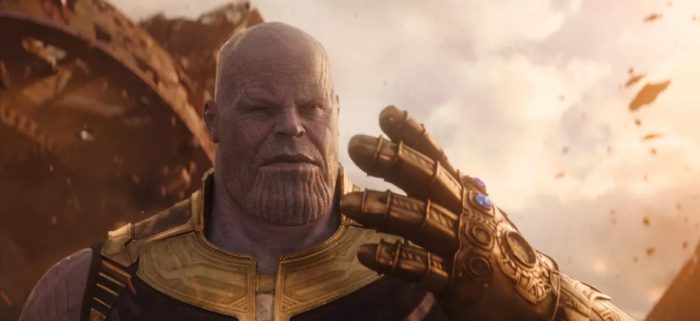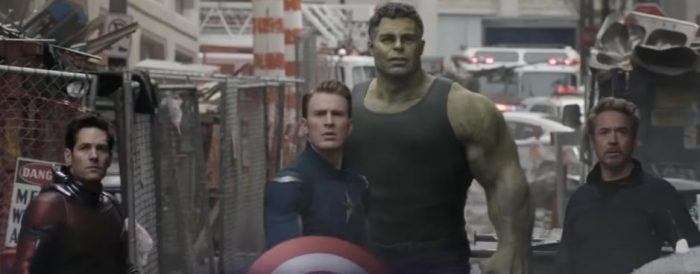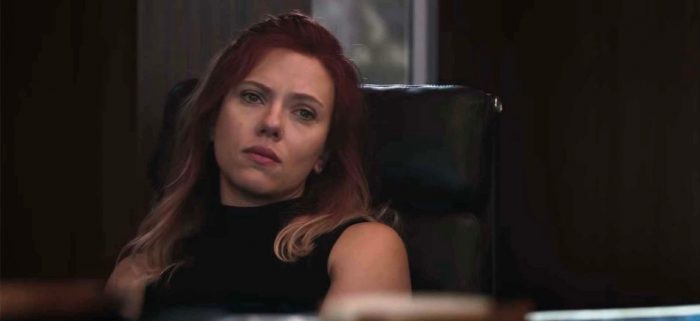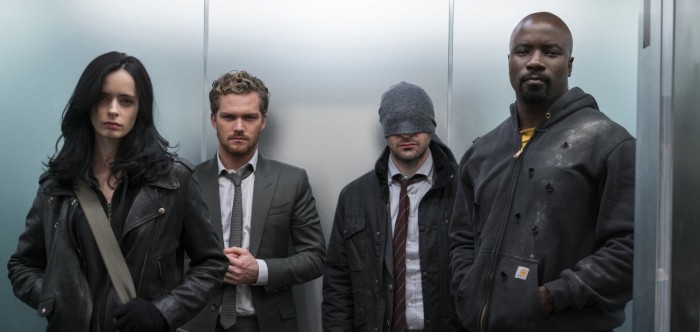Alternate 'Endgame' Storylines Revealed By 'Avengers' Screenwriters
Avengers: Infinity War and Endgame screenwriters Christopher Markus and Stephen McFeely sat down with the New York Times for an incredibly detailed interview delving into the epic conclusion to the Infinity Saga. During the interview, Markus and McFeely detail several alternate Endgame storylines that they kicked around before arriving at what happens in the final film. Major spoilers follow.
Before and After the Snap
One of the biggest problems Markus and McFeely say they ran into in crafting Infinity War and Endgame was determining just when to have Thanos snap away half the universe (and half the MCU characters) – and then when to bring everyone back. "We realized fairly early on that if we didn't do it at the end of the first movie, the first movie wasn't going to have an end," Markus says. "And if we did it too early in the first movie, it would be a bit of an anticlimax after you've killed half the universe to have them stumbling around for half an hour."
McFeely then adds that while the original Avengers – Captain America, Iron Man, Thor, Hulk, Black Widow and Hawkeye – survive the Snap, Endgame couldn't bring other characters, like Black Panther or Doctor Strange, back too soon. "If you were a big fan of [those other characters], you're only going to get a little brief window on them," says McFeely. "It can't be all things to all people."
Fat Thor, Smart Hulk, Murderous Hawkeye
Our heroes go through many changes by the time we get to Endgame. Thor gains a significant amount of weight from chugging beer; Bruce Banner embraces his Hulk-ness, but becomes a smart (and oddly handsome) Hulk; and Hawkeye decides to straight-up murder people. McFeely and Markus say they started keeping a "master document" while Civil War was shooting, full of changes they had in mind for certain characters.
They originally planned for Thor's arc in Endgame to be a "mission of vengeance." But they realized that was similar to Thor's arc in Infinity War. So instead they decided to explore what would happen if Thor just gave up.
As for Banner, the screenwriters first considered having the character become Smart Hulk in Infinity War. "It was a lot of fun, but it came at the wrong moment," says Markus. "It was an up, right when everyone else was down."
"It happened in Wakanda," McFeely confirms. "His arc was designed like, I'm not getting along with the Hulk, the Hulk won't come out. And then they compromise and become Smart Hulk." This scene was even shot, but ultimately scrapped.
When they moved the Smart Hulk concept to Endgame, they toyed with the idea of having Banner in a lab, gene-splicing, but instead opted to "smash right into it", and introduce Smart Hulk chowing down on pancakes at a diner.
And as for Hawkeye's switch to cold-blooded killer, McFeely says: "He's a good example of people who had much stronger stories after the Snap. What was the story to tell with Hawkeye in the first movie that was different than anybody else's? Leaving his family to go fight again? Yeah, he did that in Civil War. The hope is that he's killing bad people." They originally had Endgame's haunting opening scene, where Hawkeye's family disappears because of the Snap, at the end of Infinity War, but realized that since Hawkeye hadn't been in the movie at all before then, it might seem out of place.
Black Widow's Death
There's a big, dramatic moment in Endgame where Hawkeye and Black Widow have to make the ultimate sacrifice in order to score the Soul Stone – one of them has to die. The two have a brief fight, with each wanting to sacrifice themselves. Ultimately, it's Widow who kills herself, much to Hawkeye's horror. Markus and McFeely confirm that at one point, they did have a draft where it was Hawkeye who died instead.
After some consideration, they changed it. "Her journey, in our minds, had come to an end if she could get the Avengers back," McFeely says. "She comes from such an abusive, terrible, mind-control background, so when she gets to Vormir and she has a chance to get the family back, that's a thing she would trade for."
Time Travel
After the devastating conclusion of Infinity War, many fans theorized that time travel would play a part in Endgame, and that the Time Stone would be involved. That was half right – time travel does take place, but via the Quantum Realm. However, the writers confirm that Marvel Studios President Kevin Feige was the one who came up with the time travel plotline, and suggested the Time Stone's involvement. As the story evolved, it was the Quantum Realm that became the key to moving the characters through time.
The Avengers move to different movies in the franchise, including the first Avengers movie. But that wasn't always the case. "In the first draft, we didn't go back to the [original] Avengers movie," says McFeely. "We went back to Asgard. But there's a moment in the M.C.U., if you're paying very close attention, where the Aether is there and the Tesseract is in the vault. In that iteration, we were interested in Tony going to Asgard. He had a stealth suit, so he was invisible, and he fought Heimdall, who could see him."
This lead to a long scene with Thor and Jane Foster (they don't share any time at all in the final film). The scene on Morag, from the first Guardians of the Galaxy, was much more complicated as well – until the writers realized they could simplify things by simply punching Star-Lord in the face and knocking him out cold.
"There were entirely other trips taken," Markus adds. "They went to the Triskelion at one point to get the [Tesseract], and then somebody was going to get into a car and drive to Doctor Strange's house."
Despite all this, the duo kept trying to avoid a return to the original Avengers film, because felt such a move would be too "pander-y." Ultimately, though, it was co-director Joe Russo who said enough was enough, and that going back to the first Avengers movie made sense.
Cameos and Other Marvel Characters
Could the Netflix Marvel characters have made it into the big final Endgame battle? No. "We would have to introduce these five characters — or whatever many," says McFeely. "We already are assuming people have seen a lot of the movies. Are we really going to assume they have bought a subscription to Netflix and watched those shows enough so that when they see them, they're going to go 'yay?'"
Markus adds: "It also screws up the timelines. You would have to assume that they all got snapped away, or otherwise they might have shown up earlier."
Sorry, Netfilx Marvel heroes.
As for other cameos, the screenwriters confirm they wrote several alternates for a scene in which Robert Redford's Alexander Pierce shows up, in case Redford wasn't available. Those alternates included Nick Fury, and Maria Hill.
Beyond that, the duo say they also considered putting The Living Tribunal in Infinity War, during the Titan battle, but it proved to be too confusing for some people.
And what of the Fox characters – like X-Men and the Fantastic Four? Did Markus and McFeely have a draft where they showed up in the big final battle? Negative. McFeely says that at the time they wrote the script, the Disney-Fox deal wasn't finalized, so they didn't have the legal right to include those characters. And even if they did, it would've been rude to essentially reboot the X-Men before the final X-Men film – Dark Phoenix – opens.




